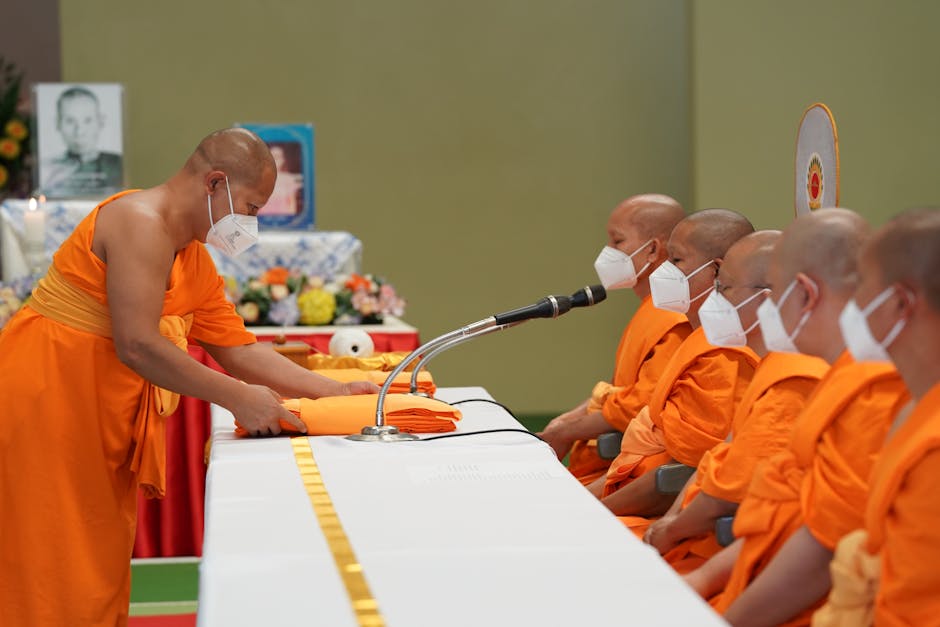Humanity has long pondered the profound connection between the mind, body, and spirit. While often treated as separate entities, a burgeoning body of research and ancient wisdom traditions suggest that spiritual practices hold a significant potential to positively impact physical health. Exploring this intricate relationship illuminates the multifaceted ways in which our inner lives influence our outward well-being.
A core principle underpinning this connection is the concept of interconnectedness. Ancient philosophies, from Buddhism to Ayurveda, articulate this concept, highlighting the intricate web of relationships linking all things, including the human mind, body, and spirit. A harmonious balance within this system is frequently associated with optimal health. Spiritual practices, as tools for cultivating this balance, become powerful pathways to physical well-being.
Numerous studies investigate the correlation between spiritual engagement and various health outcomes. Meditation, for instance, a cornerstone of numerous spiritual traditions, has been linked to a reduction in stress hormones like cortisol. Chronic stress, as established by scientific research, can significantly impair bodily functions, impacting cardiovascular health and immune response. Meditation’s ability to calm the mind and reduce stress may thus contribute to improved physical well-being.
Furthermore, a sense of purpose and meaning, often fostered through spiritual practices, has proven to be a significant factor in overall health. Individuals with a strong sense of purpose tend to experience lower levels of anxiety and depression, both of which have demonstrably adverse effects on physical health. Spiritual communities frequently provide social support networks that can buffer against stress, enhancing resilience and improving physical well-being in the process.
Prayer, another prominent spiritual practice, shows potential benefits. While the mechanisms are not fully understood, some studies suggest that prayer can influence the immune system and reduce feelings of pain and distress. These observations, while not fully conclusive, point towards a potential correlation between spiritual practices and physical healing pathways.
A compelling example of this connection is found in the practice of mindfulness. Mindfulness, rooted in various spiritual traditions, involves paying close attention to the present moment without judgment. Through mindful practices, individuals can develop greater awareness of their bodily sensations and emotional responses. This heightened awareness allows for greater self-regulation, potentially impacting physical symptoms associated with chronic conditions.
Another area where spiritual engagement may play a pivotal role is in promoting healthy lifestyle choices. Many spiritual traditions emphasize the importance of mindful eating, balanced living, and ethical behaviour. Such principles can directly translate into healthier dietary habits, more regular exercise, and reduced substance abuse all factors crucial for maintaining optimal physical health.
Nonetheless, it is vital to acknowledge the limitations of current research. Many studies on the subject are observational and correlational, making it difficult to definitively establish cause-and-effect relationships. The subjective nature of spiritual experiences and the complexities of human biology present inherent challenges in quantifying and understanding the precise mechanisms underlying these potential connections.
It’s also important to recognize the role of individual differences in response to spiritual practices. A multitude of factors, including pre-existing health conditions, personal beliefs, and cultural background, can significantly influence an individual’s experience and outcome. A holistic approach, considering a multitude of factors, is essential in understanding the intricate interplay between spirituality and physical health.
It is imperative to avoid overly simplistic or reductionist interpretations. While evidence suggests potential benefits, it is crucial to emphasize that spiritual practices are not a substitute for conventional medical care. If an individual experiences physical symptoms, seeking professional medical attention is paramount. Spiritual practices should complement, not replace, established medical approaches.
Ultimately, the link between spiritual practices and physical health remains a fascinating and complex area of inquiry. As research continues to explore the profound connections between the mind, body, and spirit, we gain a clearer understanding of how our inner lives can profoundly influence our outward well-being. While a definitive conclusion on the causal relationship awaits further investigation, the accumulating evidence points towards a meaningful interplay. Perhaps, the path to optimal well-being lies in embracing a holistic approach that values both the spiritual and the physical dimensions of the human experience. This approach acknowledges the profound role spirituality may play in enhancing our overall health and well-being, paving the way for a more comprehensive and integrated view of wellness.






